As a child, I spent idyllic summers at my family’s secluded lake cabin in the woods of Northern Wisconsin. My fondest memories include swimming with my cousins, cooking with my grandmother, and fishing with my dad.
Hello nostalgia.
Last Summer I returned that tiny lake cabin to share a week-long vacation with my dad, cousins, and this time, my own child. About half way through the vacation, I remember sitting in a lawn chair on the beach chatting with my cousins.

Kids play turned rough.
As the kids continued wrestling, one of them started choking on water.
Gulp.
It’s the sound that sends a mother’s heart straight down to her pelvis.
post contains affiliate links
Thankfully, it was a small amount of water and after a few good coughs all was well again. But the kids couldn’t help continue to wrestle. Splashes of water transcended into the air, heads were dunked under water, and playful shrieks traveled at least a mile across the lake.
No one wanted to ruin their fun, but surely our hearts and stomachs couldn’t handle one more drop into the pelvis.
Those four words.
Still sitting firmly in our lawn chairs my cousin called out the kids’ names one-by-one to get their attention. Of course they ignored her and continued roughhousing in the water. The second time she yelled louder with her hands around her mouth, amplifying the sound.
(Yes, we continued parenting from a lawn chair. Don’t judge. My dad orchestrated great parenting from a lawn chair. Old habits die hard.)
Finally the boys stopped, looked over in our general direction, and waited for some sort of instruction. With her right hand raised high in the air showing the two-finger piece symbol, she shouted a parenting phrase that I now use every day:
“You have two choices!”
I loved that phrase the moment I heard it. She grabbed my attention. I too wanted to know what these choices were.
The boys listened intently as she revealed the choices.
“Put on your life jackets or get out of the water. Which choice would you like?”
And just like that the boys stopped wrestling, came out of the water, donned life jackets and returned to wrestling in the water. There was no begging, nagging or reminding. It just happened like you asked them to get out of the water for a cookie.
From that day forward.
Kids–toddlers especially–will engage in testing boundaries at every chance they get. It’s emotionally draining. It’s frustrating. It leaves you exhausted at the end of the day wondering why a kid engages in power struggles all. day. long.
But…
Choices change everything.
Why?
Because both the child and the parent maintain a sense of control.
The parent maintains control of what the two choices are and the child maintains control over which option is chosen. It’s a win-win.
Here are a few very basic examples:
You have two choices: color with the crayons on the paper only or put them away.
You have two choices: hold my hand as we cross the street or sit buckled in the stroller.
You have two choices: put your train set away during dinner time or lose the train set for the rest of the day.
When choices don’t work.
Of course there are times when your child will refuse either choice. Been there. And of course there are times when your child chooses one thing but doesn’t abide by the choice. Been there too.
Eat some chocolate, diffuse some essential oils, and do not panic.
There’s an easy step-by-step to help make choices work for you…
- Physically get down on the child’s eye-level.
- Look him or her in the eyes.
- State the desired behavior in a calm but firm voice.
- Then state the consequence for not listening or abiding by the choice.
- Follow through with the consequence, if needed.
The lesson learned that summer.
As a child, I learned countless life lessons alongside my cousins at the tiny lake cabin. How to be kind. How to say I’m sorry. How to make a s’more by the camp fire. Each summer I grew up, laughed and learned.
As an adult, I didn’t expect return to the cabin and learn more life lessons alongside my cousins. Learning the phrase “You have two choices” was unexpected, yet so useful!
I’ll always remember that parenting lessons come when you least expect it–like when you’re trying to decide whether to shout “Two choices” from your lawn chair or jump in the water to break up a fight.
Yup. Choices.
This post comes with a Free Printable Checklist
Power struggles are challenging! Use this simple printable to give yourself a ten quick parenting wins throughout the day when power struggles hit. Print it out and keep it on your fridge. Parenting doesn’t have to be complicated! Let’s simplify!
Here’s a sneak peak…
Download Your Free Printable
- Download the checklist. You’ll get the printable, plus join 37,000+ readers who receive my weekly-ish parenting ideas!
- Print. Any paper will do the trick, but card stock would be ideal.
- Place it on your refrigerator. Check things off as you go and don’t forget a thing!
Want more on parenting?
- The Tantrum Taming Tip Most Parents Don’t Know About
- 5 Highly Effective Tips for Parenting a Strong Willed Child
- 4 Ridiculously Easy Ways to End a Power Struggle
- The Most Powerful Way to Respond When Your Child Gives Up
I've created a free email series just for you! If you are struggling with teaching your child to listen, this series will help transform your parenting. Yes, really. I've seen my proven strategies work time and time again for parents. I know it can work for you too.
After taking my free email series, you will:
- Learn simple, yet highly effective listening strategies
- Experience a stronger connection with your child
- Enjoy more peaceful parenting days
- Gain more cooperation from your child

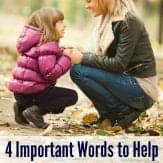



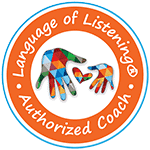
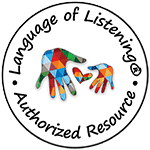
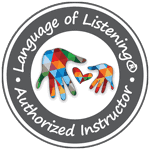
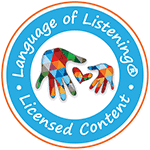








Lauren or anyone who can help, I just signed up for your newsletter and classes. But I need help now
We have just implemented a reward chart for our 3 and a half year old. He was hitting me and my husband and our pets at the slightest upset. He now has been getting stars to earn a reward for every time he uses his words instead of his hands. 4 stars equals 1 reward. He can put the stars on the chart himself this has been super helpful and he has reduced his hitting and has been using deep breaths to help calm himself down. Our next struggle has been bedtime and this has been going on for about a year and a half on and off. We are consistent with our routine +/- bath, pjs, snack, brush teeth, books, and bedtime. He gets out of bed over and over and over. We have tried everything from positive parenting suggestions to the low road of parenting where we have yelled and screamed (ashamed of it but yes it happened one night he we laid him down at 8 he was still awake at 1130. Currently I remove toys from his room if he doesnt stay in bed. When he stays in bed he earns a star on his chart. When will the bedtime battle end? How can I get him to sleep without the tears this is killing me he is upset nearly every night and I dont know why. Bedtime is supposed to be relaxing and its just so stressful. Please if you have any advice